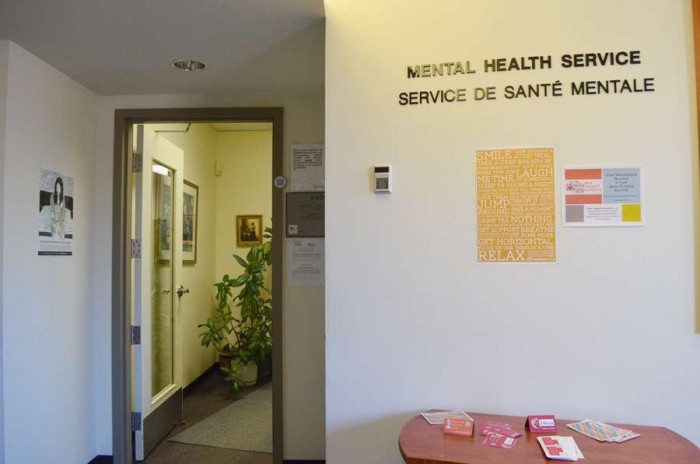A new mental health website and hiring a Mental Health Coordinator are top priorities for the Students’ Society of McGill University (SSMU), according to a new mental health policy to be approved at the Feb. 20 SSMU Council.
Other goals of the policy are to be implemented in the next five years, and include the implementation of a Mental Health Fee, the coordination of various events such as Mental Health Awareness Week, and the organization of space and support for mental health groups.
In addition, the policy plans to establish a permanent space in the SSMU building, for student inquiries and events related to mental health.
The new mental health policy is the result of an ad-hoc committee SSMU created at the beginning of the academic year. Joey Shea, SSMU Vice-President University Affairs, cited SSMU’s lack of a current policy promoting student mental wellness as the reason for the committee’s work.
“We realized that SSMU doesn’t have any institutionalized mental health policy to help mental health groups and facilitate their interaction,” she said.
According to Shea, the policy aims to provide a network of resources and increase awareness for the improvement of both mental health services and the overall mental wellness of students on campus.
“It’s a comprehensive, diverse mental health network that is aimed at getting services together to work collaboratively to meet the diversity of mental health needs that students have on campus in a respectful way,” said David Benrimoh, SSMU Medicine representative and member of the Mental Health Committee.
Much of the policy will be supported through a fee, which SSMU will seek to implement through a question in the Winter 2015 referendum. In the meantime, tasks will include creating the website, as well as hiring a coordinator, creating a listserv, planning events, and continuing research.
“It [will be] used to fund a Mental Health Coordinator and possibly the mental health website and the administrator,” Benrimoh said. “Remaining funds will be allocated by the SSMU funding committee to the student-run mental health initiatives.”
According to Shea, the website aspect of the project has already received funding through a grant from Bell Canada.
According to Benrimoh, the website will list available mental health services in one central location.
“On the website, you ideally would have mental health ‘service of the week,’ categories of services, like education, peer support, mental health services, etc.,” he said. “Once we have our policy implemented, we need a way for it to be accessible to people, so this website is our way to do it.”
Shea emphasized that the policy would be open to revision if passed at Council.
“[The SSMU mental health policy] is meant to be a living document, updated year to year,” she said. “Our statement of values is meant to be a framework, to be built on and added to through the years.”
Charlotte Cailliarec, U0 Arts, praised the policy, saying that it responded to a definite need for McGill.
“It’s great that there will be a developed mental health network at McGill to coordinate all the different student-run mental health initiatives and provide a network that stands in solidarity,” she said. “As there’s still a present stigma against mental health, it’s important that […] there’s a network to raise awareness and provide support for anyone who needs it.”
If approved at the Feb. 20 Council, the policy will be implemented and the five-year plan will begin.
“Our main emphasis was on the fact that a healthy campus isn’t a campus that doesn’t have mental health issues […] but [one that] has a focus on wellness and a holistic approach to these issues,” Shea said.
Benrimoh expressed similar sentiments, noting its positive effects of it for students.
“We all bring something new to the table,” Benrimoh said “I truly believe that we are going to help individuals, groups, and the whole community.”







